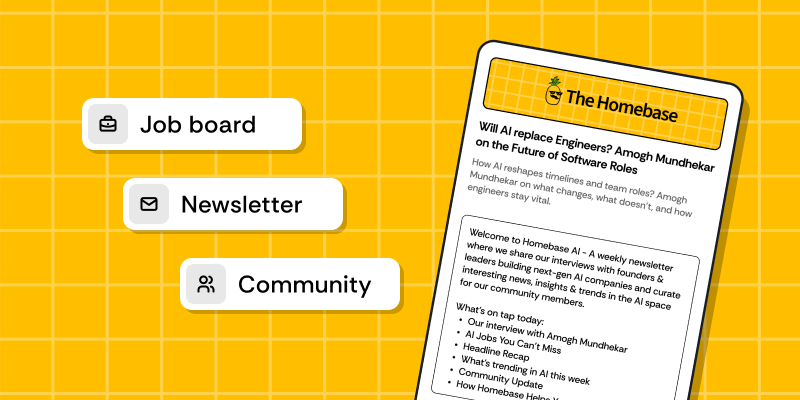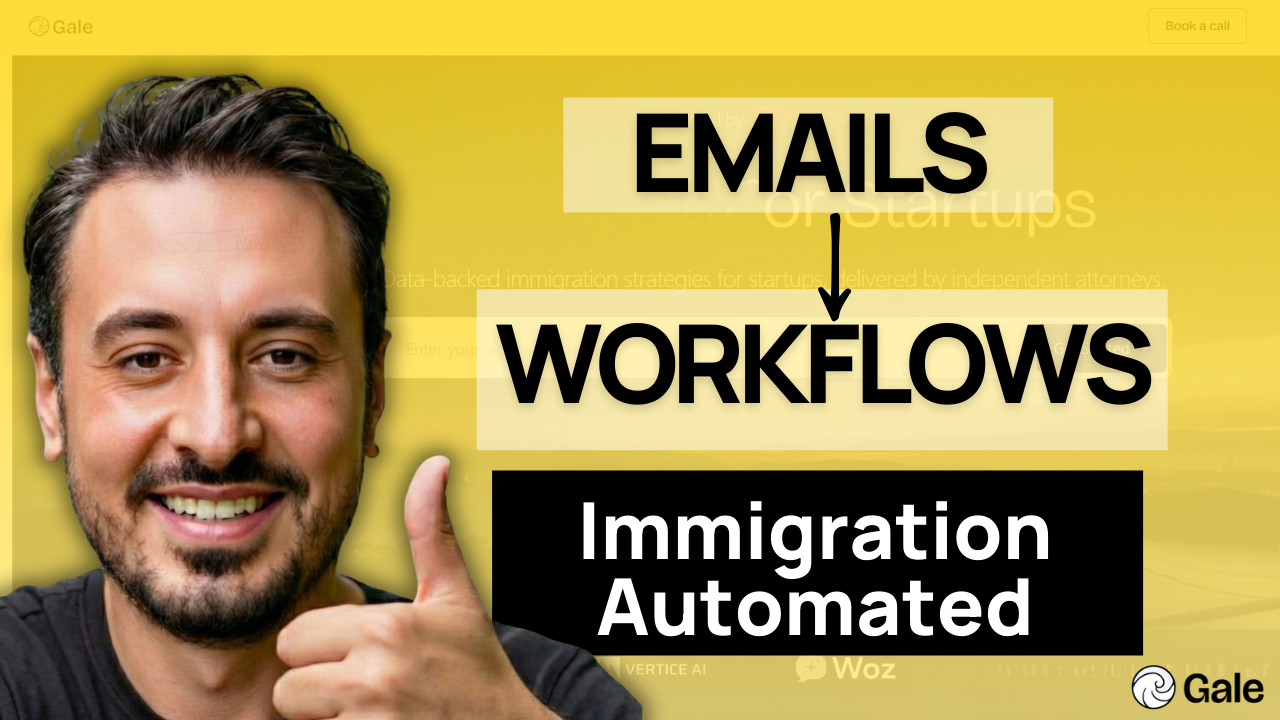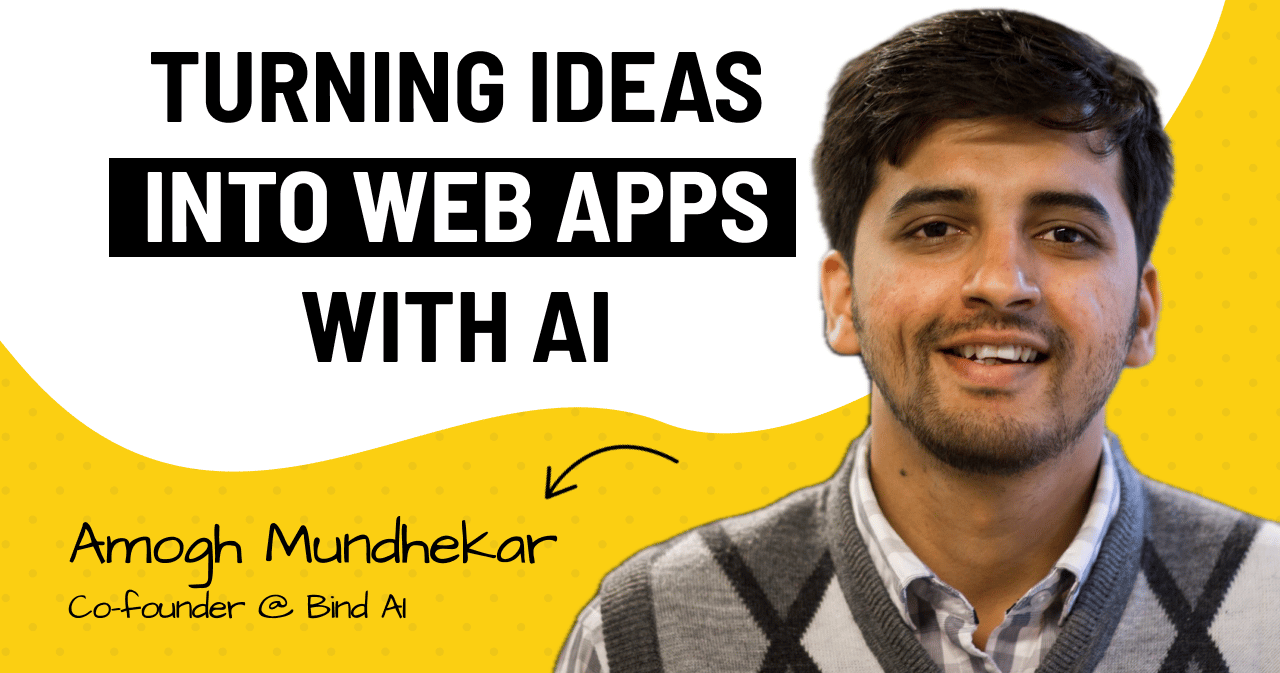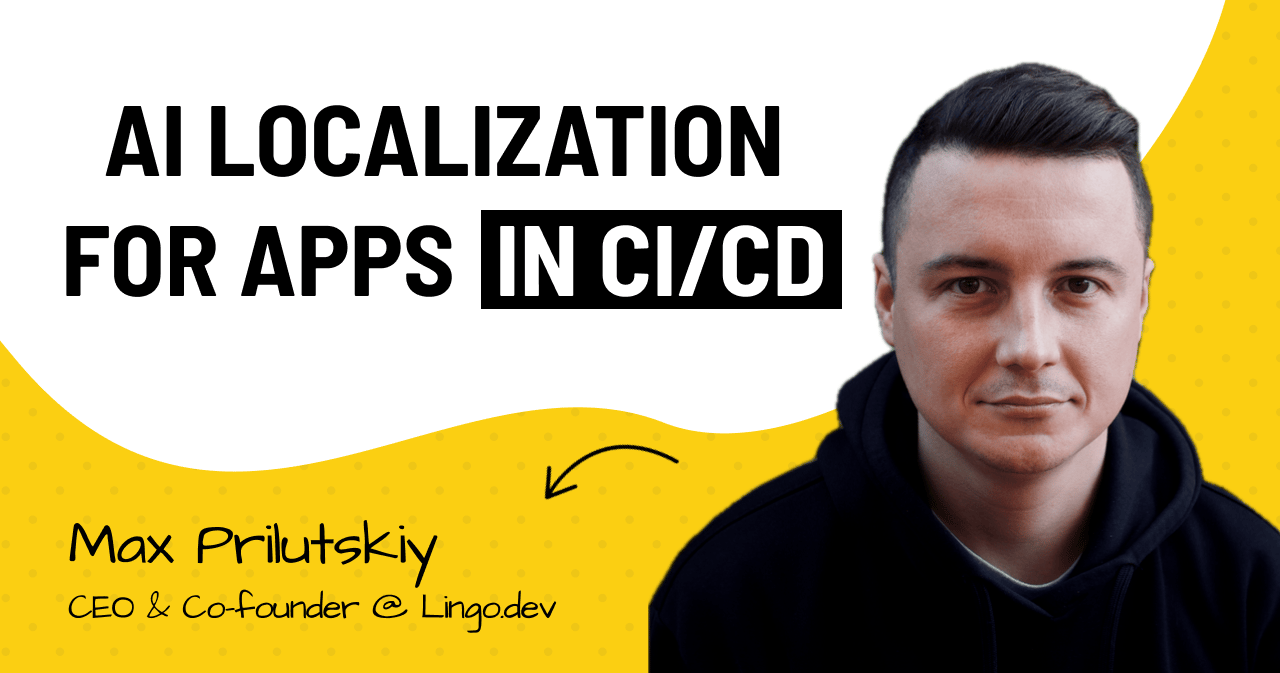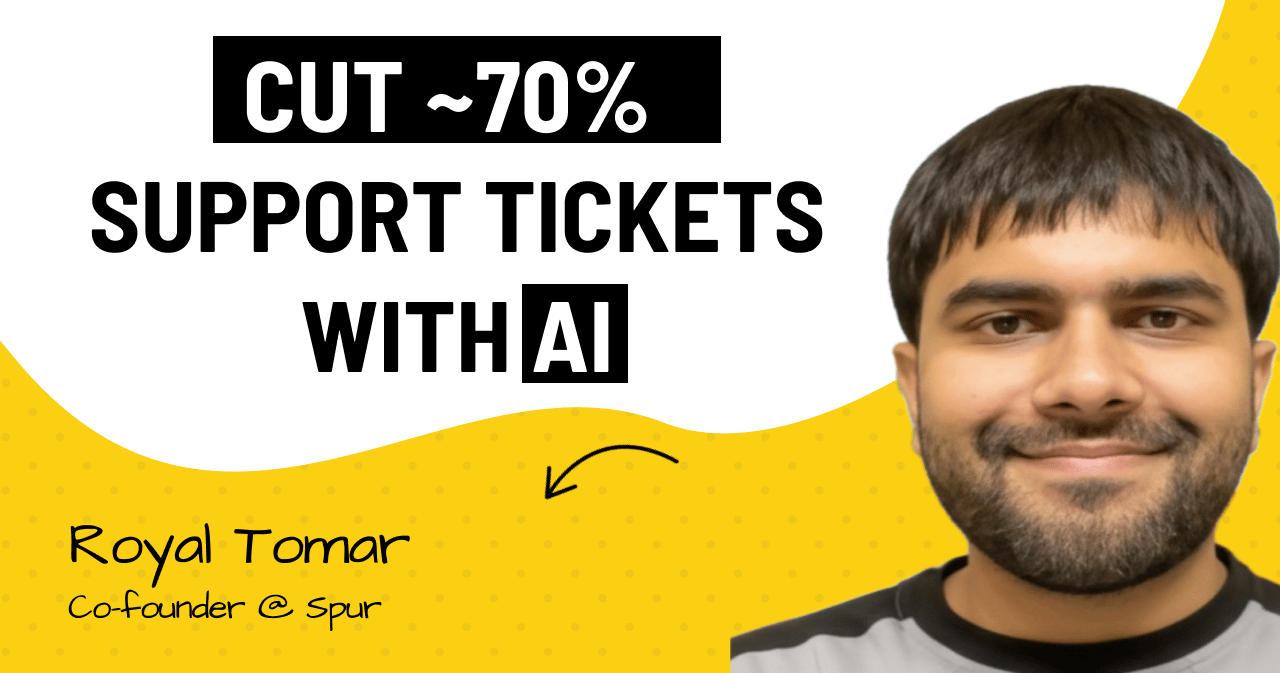Meet St John Dalgleish, co-founder of Perlon AI, a London-based startup specializing in AI-driven outbound prospecting. With a background leading sales teams in applied NLP, Dalgleish has developed a SaaS product claiming to generate 5x more replies than standard templates. He shares insights on their funding round, using their own AI tool for customer acquisition, and the evolving AI landscape in business.

|
Company: |
Founded: |
Headquarters: |
Key Highlights:
If you only have a few minutes to spare, here's what leaders and founders should know about St John Dalgleish's insights on AI and entrepreneurship:
-
Niche AI application. Perlon AI specializes in enabling hyper-personalised, human-sounding prospecting campaigns at scale, generating 5x the replies of standard templates.
-
Pivot to product. Transitioned from an AI consultancy to a SaaS product within months, focusing on new business generation with generative AI.
-
AI-powered growth. Achieved growth using their own AI tool, with zero marketing budget and a team of just 4 people.
-
Lean scalability. Maintains profitability while scaling cautiously, using contract engineers and ML specialists for product development as needed.
-
Early funding. Raised £310,000 in February 2023, supporting their growth while staying cash-flow positive.
-
Rapid MVP development. Launched a "very rough and ready MVP" in under a month, quickly iterating based on user feedback.
-
Ambitious yet pragmatic goals. Aiming to reach $1M in ARR with fewer than 5 FTEs before scaling to become a category-defining global company.
What exactly does PerlonAI do? PerlonAI fine-tunes custom language models (LLMs) to generate hyper-personalized emails at scale, with each email crafted uniquely to bypass spam filters and significantly boost reply rates. Global companies such as Revolut and LVMH rely on these models to enhance their outbound sales efforts, achieving five times more replies compared to traditional templates
Your Story: Tell us about your path to becoming a founder.
I spent 7+ years growing and leading Sales teams at global technology companies, most recently in applied NLP. I joined forces with our CTO to initially build a consultancy to help SMEs deploy AI across a range of different use cases. After a few months, we quickly noticed that the largest opportunity lay in new business generation and the application of generative AI to help companies generate pipelines. We saw a large opportunity in a broad market segment and decided to build a highly custom SaaS product based on our own learnings from years of operating and working with commercial teams.
The Elevator Pitch: Give us your startup's pitch in 2-3 punchy sentences.
At Perlon AI we specialise in enabling hyper-personalised, human-sounding prospecting campaigns to be delivered at scale. We use custom AI models to help companies drive pipelines on autopilot.
The outbound prospecting game has changed beyond recognition, and many companies have failed to keep up with the changes that have occurred in the past 12 months. Our technology gives commercial teams access to the best infrastructure and the best generative AI content to generate 5x the replies of standard templates.
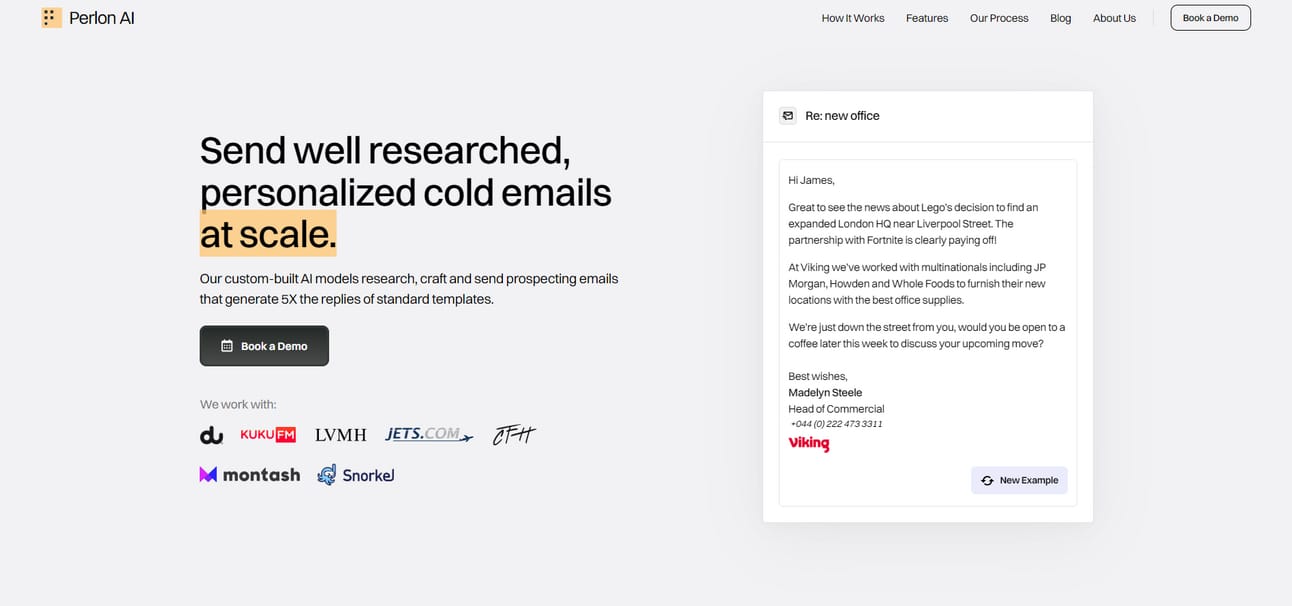
Your Idea in the Early Days: What was the 'Aha' moment that led to your startup?
When running our consultancy, we have multiple requests from customers: how can we use AI to do more business? We looked at this from the first principle: outbound pipeline generation.
Once we'd successfully built and launched an MVP with one customer, we began to take the product to market, and build iterative based on user feedback.
Market Insight and Early Customers: How did you identify market gaps and acquire your first 10/100/1000 users/customers?
We are fortunate in having built a tool for outbound prospecting, so have the benefit of being able to drink our own champagne, as they say! Our ICP is clear: sales teams, but our customers come from a range of industry verticals including SaaS, aviation, banking, interior design, crypto, and lead gen agencies to name a few.
We had a lot of early traction in private aviation and b2b SaaS so we doubled down on those 2 industries initially. We targeted lean sales teams, often those with full-cycle AEs who do not have distinct SDR functions. We started by targeting customers in the 10-50 employee range but are now fortunate to work with several large enterprises as well, the largest of which has 7,500 employees.
Pivots: Were there any major pivots that you had to make in the early days?
We made a big pivot from consulting to a SaaS product in a matter of months after starting the business. Since then the core product has broadly remained the same, but we've iterated and built out features that all lead to one of two outcomes: higher open rates, and higher response rates.
We launched with a very rough and ready MVP that was built in under a month. So there was a lot of behind-the-scenes work required to build a performant solution that was able to scale to sending millions of emails each month.
Growth: What strategies really moved the needle for your business when it comes to growth?
Our growth hack is simple: using Perlon AI, at scale. We are a lean team and currently have a marketing budget of £0. The combination of using our own tool, posting via LinkedIn, and building out a strong set of referral partners has enabled us to get to where we are now.
As we continue to mature as a business, we are starting to look to other ways of maintaining a solid new business pipeline including influencer marketing and at some point next year, paid ads and SEO.
Biggest challenge/s: Every startup faces hurdles. What were your biggest challenges, financial or otherwise, and how did you tackle them?
Our biggest challenge has been managing our own ambition to grow with the capacity constraints brought about by our determination to build a profitable company that is MoM cash-flow positive. We are scaling cautiously, with a keen eye on unit economics and sustainable business practices. We have a brilliant team of contract engineers and ML specialists who we bring in to support our product development as and when we need them.
Building the Brand: What's the story behind your company name & brand? Any unique marketing approaches that worked wonders?
Perlon as a name actually has no real significance. I was searching for a name when a good friend of mine said 'What about Perlon?' and the rest is history!
The Perlon brand is a work in progress. We launched with a basic brand strategy and wanted to focus on the product's effectiveness as the main priority.
AI in Action: How are you leveraging AI in your business?
Our CTO is an ML engineer by trade, so LLMs form the mainstay of our core product. We have been incredibly fortunate to be able to leverage this technology to drive over 80% of our ongoing pipeline.
Game-Changing Tools: What are the top 3 AI products or tools that have transformed how you run your business?
There is only really one. And that's our own tool! (joking)
Day to day both our CTO and I are big fans of Perplexity and on the technical side v0 by Vercel is a game changer for UI jobs and Cursor has been a godsend as a code-editing co-pilot.
Future Vision: What's your 10-year vision for your company? What milestones are you aiming for in the next 3/5/10 years?
We are building the de-facto outbound solution for companies that care about the quality of their prospecting output. We are fortunate to work with companies in the UK, US, MEA, and now Africa, but the market is so much bigger, and we want to be a leader in the space. The definition of effective prospecting continues to change, but its importance as a means of driving new business growth doesn't.
Our first milestone is getting to $1m in ARR. We want to do this with fewer than 5 FTEs, and then scale to become a category-defining global company.
Team Building: Are you hiring? What roles are you looking to fill?
We're currently hiring our first full-time salesperson to help drive new market entry and help take us to our next revenue target of $1m in ARR. We look for people who are comfortable with ambiguity, have a strong interest in AI applications, and have a deep hunger to both learn and close deals.
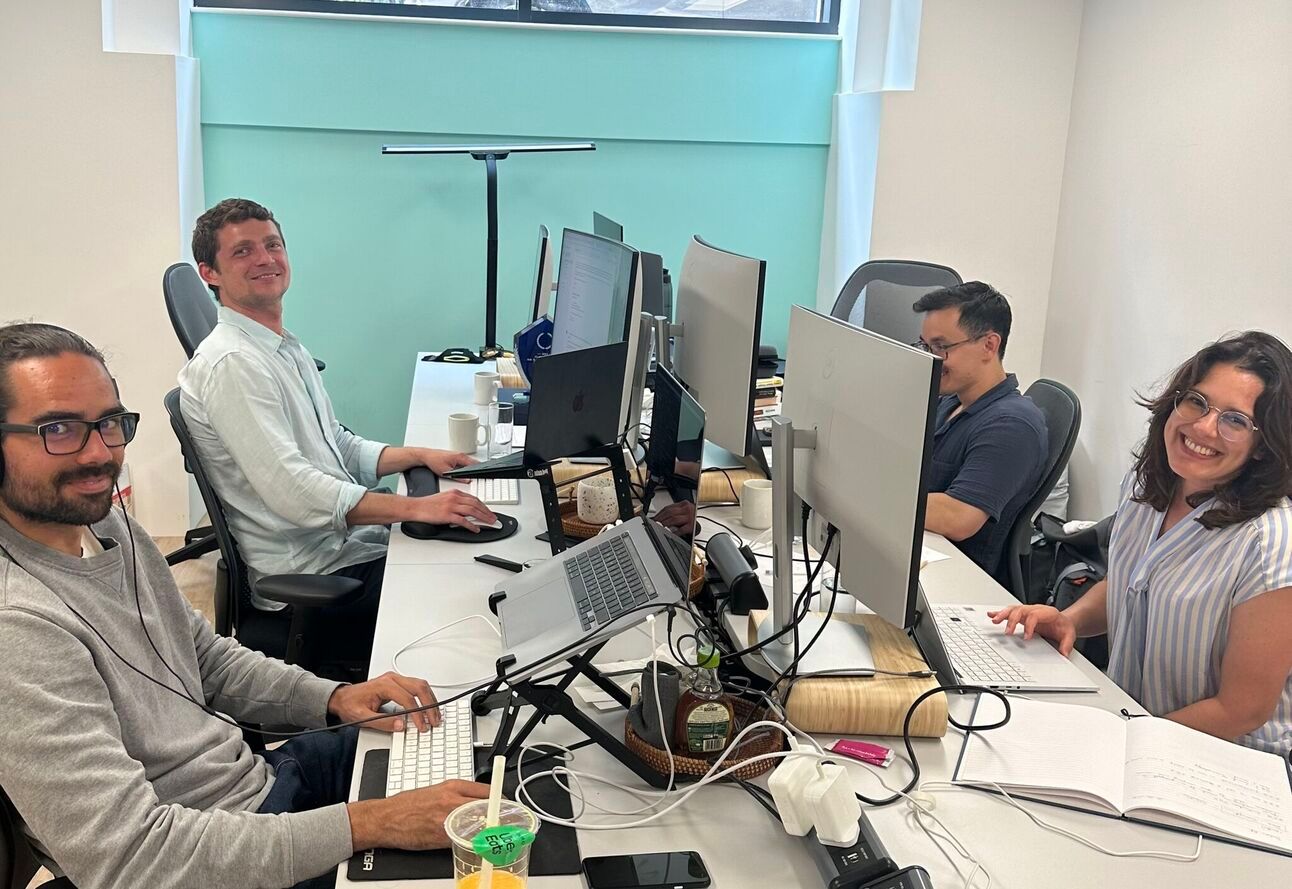
Perlon AI Team
Words of Wisdom: Any insights or advice you'd like to share with fellow entrepreneurs?
2 things that have helped me:
Focus on the fundamentals - generating revenue and building on feedback from early users is critical to building something that you know A. has a market, and B. has the potential for both utility and longevity
Don't sweat the bad days. The key to winning long-term is not giving up, and not being phased when stuff doesn't go your way. There's at least 1 day per week when I am in total despair and thinking that it's not going to work! But all it takes is a few things to go right the next day and I'm right back in the game. Being able to rationalize the bad moments and move on from them quickly is key.
Connect with Us: Where can our community learn more about your work?
Feel free to connect with me on LinkedIn or X at any time
AI's Future and AGI: How will AI transform society in the next decade? Do you think we'll achieve AGI, and why or why not?
AI's true impact on the working world has yet to come to fruition, but it's only a matter of time. Having deployed several large-scale enterprise solutions in my previous role, I've seen some of the ways that it can have an effect. But it's still very early days and most POCs aren't quite delivering yet. Model improvements combined with the sheer scale of investment in the space, will start to mean that performant AI solutions are commonplace across all industries in the coming years. Will it mean we all start to work 3 days a week? I somewhat doubt it.
AGI by any meaningful definition is in my opinion, 10+ years out. There is still a fundamental step in truly rational multi-modality that is not able to be comprehended by simply using more training data and building more layers into an artificial neural network. There's something about the way a human brain learns and develops that's incomprehensible to machines at the moment, and I'm not sure I can see this being solved anytime soon.
Interview with
St John Dalgleish
CEO @ Perlon AI
